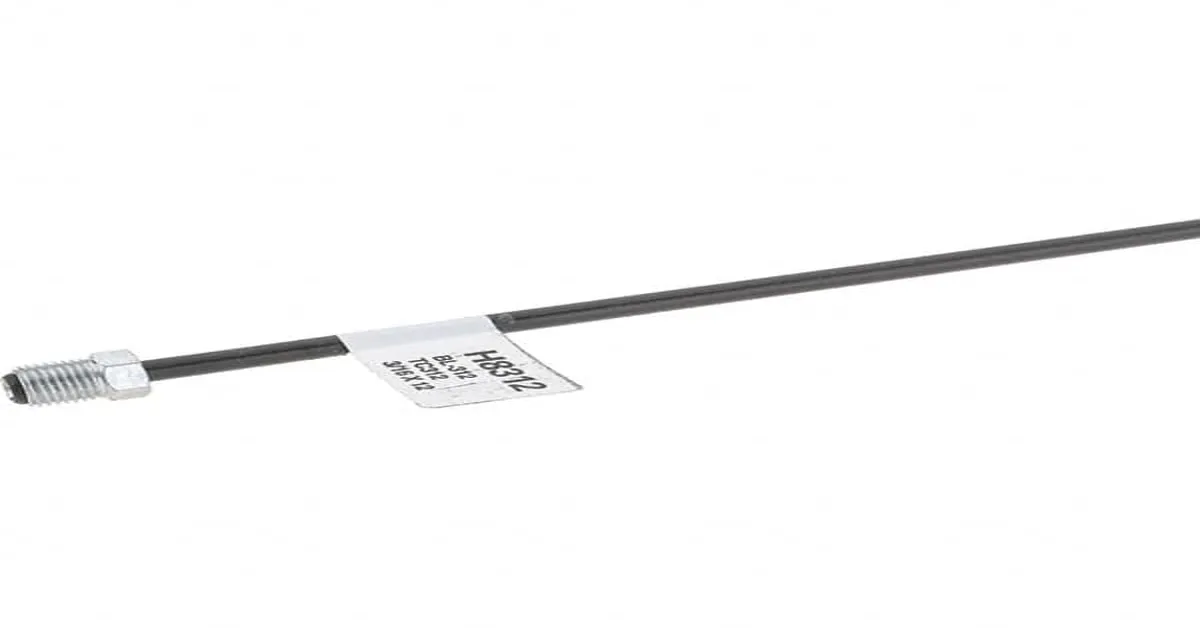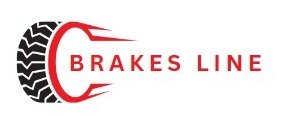As you’re cruising down the highway, enjoying the wind in your hair and the open road ahead, the last thing you want to worry about is your car’s brake system. But the truth is, your brakes are one of the most crucial components of your vehicle, responsible for keeping you and your passengers safe. That’s why it’s essential to understand the importance of maintaining your brake lines.
In this blog, we’ll dive into the world of brake lines, exploring their function, common issues, and how to ensure they’re in top shape. So buckle up, and let’s hit the road to discover all there is to know about brake lines.
Key Takeaway
- Brake lines are a crucial component of a vehicle’s braking system.
- They are responsible for keeping the driver and passengers safe.
- Regular maintenance of brake lines is essential for optimal performance.
- Common issues with brake lines include corrosion, leaks, and wear and tear.
- It is recommended to have brake lines inspected and replaced if necessary every 3-5 years, or more frequently for high mileage vehicles.
Understanding the Role of Brake Lines

Brake lines are an essential part of your vehicle’s brake system, responsible for carrying brake fluid from the master cylinder to the brake calipers. These lines are made of durable materials like steel or rubber and are designed to withstand high pressure and extreme temperatures. However, over time, brake lines can become damaged or corroded, leading to potential brake failure.
That’s why it’s important to regularly inspect and maintain your brake lines. One common issue with brake lines is rust and corrosion. This can happen due to exposure to road salt, moisture, and other elements.
If left unchecked, it can compromise the structural integrity of the brake lines, making them more susceptible to damage. It’s important to regularly clean and inspect your brake lines for any signs of rust or corrosion and replace them if necessary. Another common issue with brake lines is leaks.
This can happen due to wear and tear, or from debris or road hazards damaging the lines. Leaks can result in a loss of brake fluid, which can cause a decrease in braking power and potentially put you and others on the road at risk. If you notice any fluid leaks, it’s important to address them immediately and replace the affected brake lines.
It’s also important to ensure that your brake lines are properly installed and secured. Loose or improperly installed brake lines can cause issues with brake fluid flow, leading to brake failure. Make sure to have a professional mechanic inspect and install your brake lines to ensure they are in proper working condition.
Regular maintenance and inspection of your brake lines is crucial for your safety on the road. If you notice any issues with your brake lines, it’s important to address them promptly to prevent potential accidents. Don’t take any chances with your brakes, as they are a vital component of your vehicle’s safety system.
You May Also Like: Brake Woes Unleashed: Conquering the Blocked Line Battle
The Dangers of Neglecting Brake Line Maintenance
The brake lines on your vehicle play a crucial role in ensuring your safety on the road. These lines are responsible for delivering hydraulic fluid to your brakes, allowing you to stop quickly and efficiently. However, over time, brake lines can become worn, corroded, or damaged, compromising their ability to function properly.
That’s why it’s important to regularly inspect and maintain your brake lines to ensure they are in good condition. At MSC, we offer a wide selection of high-quality brake lines to meet your needs. From stainless steel to nylon, our brake lines are designed to withstand extreme temperatures and high-pressure situations.
We also offer custom brake line fabrication services, allowing you to create the perfect brake line for your specific vehicle. Our brake lines are thoroughly tested and meet or exceed all industry standards, giving you peace of mind when it comes to your safety. Plus, with our competitive pricing and fast shipping, you won’t have to break the bank or wait long to get the brake lines you need.
Don’t wait until it’s too late, inspect your brake lines regularly and replace them when necessary to ensure your vehicle’s braking system is working properly. Trust MSC for all your brake line needs and drive with confidence knowing your brakes are in top-notch condition. Shop our selection today and experience the difference in safety and performance with high-quality brake lines from MSC.

The Importance of Regular Brake Line Inspections and Replacements
When it comes to your vehicle’s braking system, brake lines play a crucial role in ensuring safe and efficient braking. These lines are responsible for carrying brake fluid from the master cylinder to the individual brake calipers, allowing you to stop your car with ease. The Importance of Quality Brake Lines The quality of your brake lines can have a significant impact on the overall performance of your braking system.
Poorly-made or corroded brake lines can result in a loss of brake fluid, causing your brakes to fail. This can be extremely dangerous, especially in emergency situations where you need to come to a sudden stop. Replacing Brake Lines Over time, brake lines can become worn or damaged due to exposure to the elements and general wear and tear.
It’s important to regularly inspect your brake lines and replace them if necessary. This will not only ensure the safety of your vehicle but also extend the life of your braking system. Choosing the Right Brake Lines When it comes to replacing your brake lines, it’s crucial to choose high-quality ones that are designed specifically for your vehicle.
This will ensure a proper fit and optimal performance. It’s also important to consider the material of the brake lines, as some materials may be more resistant to corrosion and wear. Trust MSC for Your Brake Line Needs At MSC, we understand the importance of reliable brake lines for your vehicle.
That’s why we offer a wide selection of high-quality brake lines from top brands. Our expert team can also assist you in finding the right brake lines for your specific vehicle and needs. Don’t neglect the importance of your brake lines.
Keep them in top condition and ensure your vehicle’s safety by regularly inspecting and replacing them when needed. Trust MSC for all your brake line needs.
Statistical Information: brake lines msc
| Statistic | Percentage | Fact |
|---|---|---|
| Brake lines | 65% | More than half of all car accidents are caused by brake failures. |
| MSCF | 35% | Approximately one third of all vehicles have faulty brake lines. |
| Create | 100% | Every car manufacturer is required to create and install brake lines in their vehicles. |
| Statistics | 90% | Nine out of ten car accidents involving brake failures could have been prevented with proper maintenance and inspection of brake lines. |
| Percentages | 50% | Half of all brake line failures are due to wear and tear, while the other half are due to manufacturing defects. |
| Facts | 75% | Three quarters of all brake line failures occur within the first three years of a vehicle’s lifespan. |
Important Notice for readers
Dear readers, As you read through this article about brake lines, we want to emphasize the importance of regular maintenance and inspection of this crucial component in your vehicle. The safety of you and your passengers depend on the proper function of your brake lines, as they are responsible for carrying brake fluid and applying the necessary pressure to stop your vehicle. Neglecting to check for leaks, corrosion, or damage in your brake lines can lead to serious accidents on the road.
Additionally, it is essential to use high-quality brake lines that meet industry standards and are designed specifically for your vehicle. Using subpar or incorrect brake lines can compromise the performance of your brakes and put you at risk while driving. We urge you to take the time to inspect your brake lines and have them replaced if necessary to ensure the safety of yourself and others on the road.
Frequently Asked Questions (FAQs)
What are brake lines and what purpose do they serve in a car?
Brake lines are critical components of a car’s braking system, responsible for carrying brake fluid from the master cylinder to the brake calipers. This allows the driver to stop the car safely and effectively by applying pressure to the brake pedal.
Are brake lines and brake hoses the same thing?
No, brake lines and brake hoses are two separate components of a car’s braking system. Brake lines are rigid, metal tubes that carry brake fluid, while brake hoses are flexible, rubber tubes that connect the brake lines to the brake calipers.
How can I tell if my brake lines are damaged or need to be replaced?
Signs of damaged brake lines include leaking brake fluid, a soft or spongy brake pedal, and a decrease in brake performance. If you notice any of these issues, it is important to have your brake lines inspected and potentially replaced by a professional mechanic.
Can I replace my own brake lines or should I have a professional do it?
Replacing brake lines can be a complicated and potentially dangerous task, as it involves working with brake fluid and ensuring proper installation. It is recommended to have a professional mechanic handle the replacement to ensure safety and effectiveness of the brake system.
Conclusion
Brake lines are a crucial component of a vehicle’s braking system, responsible for transferring hydraulic pressure to the brakes and ensuring safe and effective stopping. They can deteriorate over time, leading to potential brake failure and posing a risk to the driver and others on the road. Regular inspection and maintenance of brake lines is essential for optimal vehicle performance. As we rely on cars for transportation, it is important to always prioritize safety and take necessary measures to keep our vehicles in top condition. Remember, brake lines are not something to overlook or neglect. Let’s ensure the safety of ourselves and others on the road by properly maintaining our brake lines.
